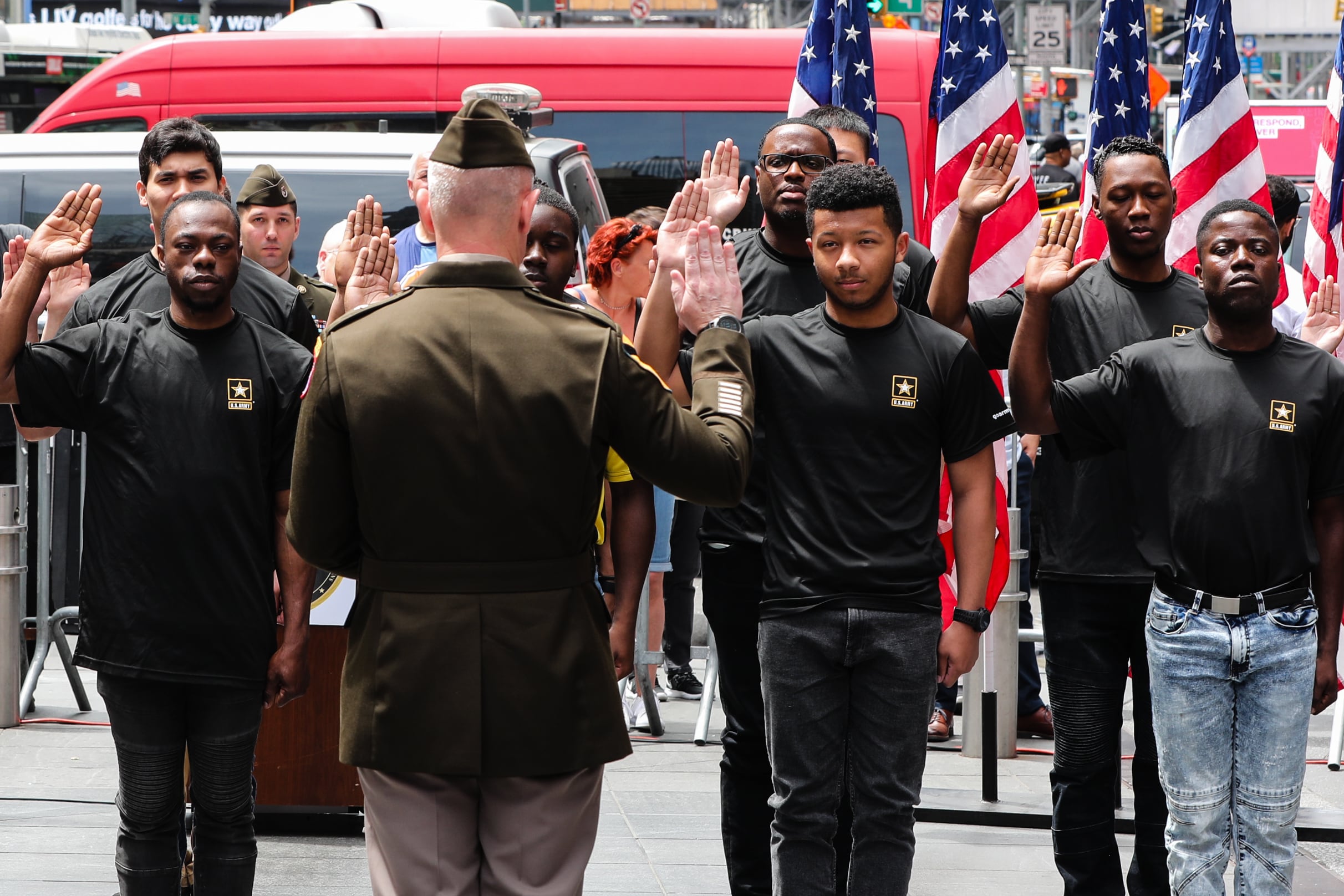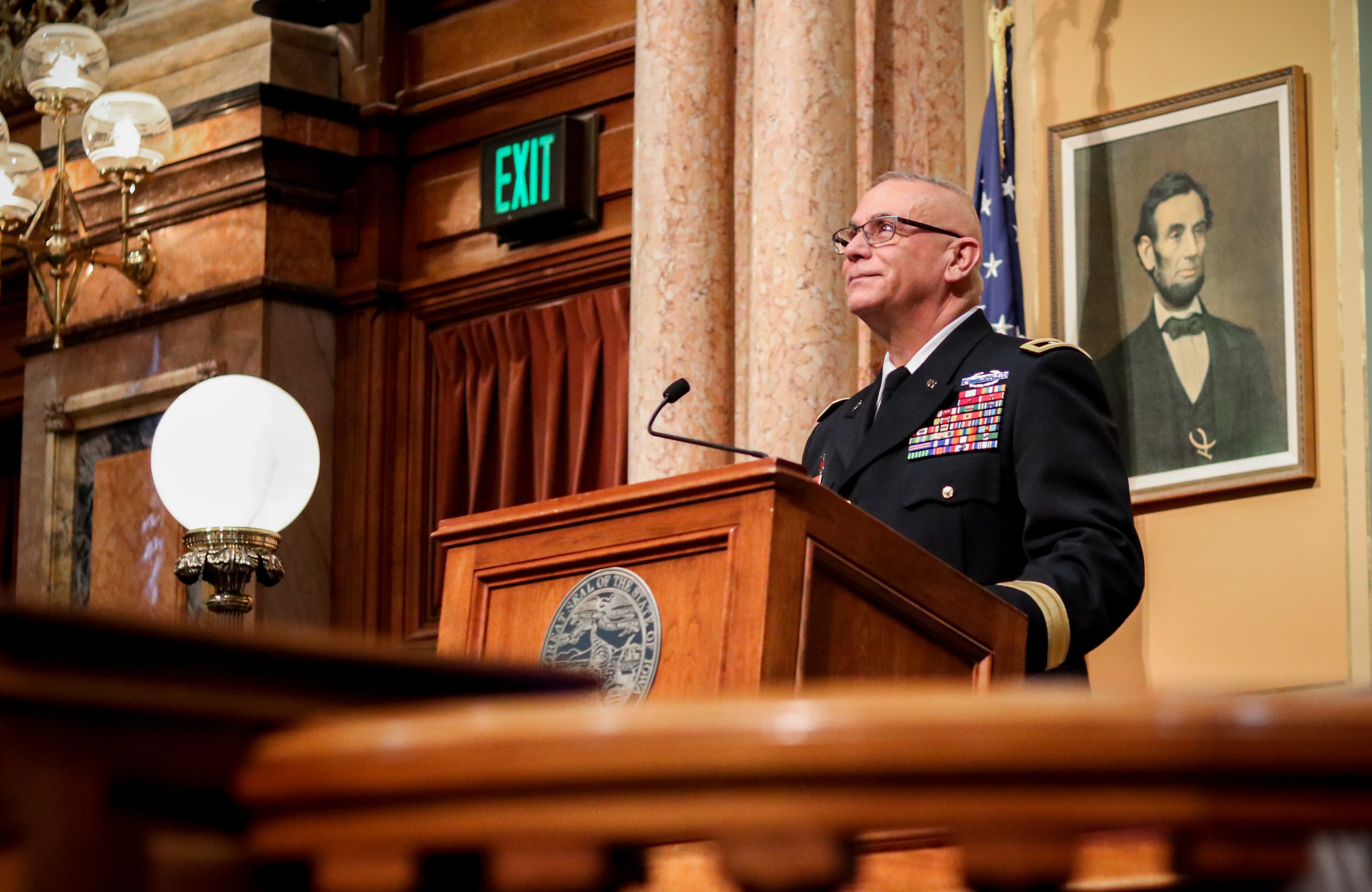Recruitment has continued to be a challenge for the Iowa National Guard — a lingering effect of the coronavirus pandemic, Maj. Gen. Ben Corell said in his annual Condition of the Guard address on Thursday.
“The number one challenge to readiness has become strength in our ability to recruit and retain quality soldiers and airmen,” said Corell, who leads the state National Guard as its adjutant general. “As we exit the COVID-19 era, national economic, educational, societal trends have increased competition for talent, which has decreased the incentive to serve in our military.”
Last year was the worst for U.S. military recruiting in about five decades, he said.
The Iowa Army National Guard, which accounts for the bulk of service members in the state, is authorized to have more than 6,800 members and is operating at about 98% of that total, said Capt. Kevin Waldron, a Guard spokesperson.
RELATED

That’s down from about 102% two years ago but is still relatively high. In 2016 it was 91%, according to state records. The Guard is allowed to exceed 100% to buoy against the losses of service members who retire or complete their contracts.
“We’re at about 98%, which still absolutely means that we can serve the people of Iowa, serve any kind of mission that we’re asked to do,” Waldron said. “So we are not seeing it as a significant crisis.”
Guard members provide assistance during disasters and emergencies in Iowa and can be deployed abroad for combat and other missions.
About 240 soldiers were deployed last year to strengthen NATO’s presence in Poland, which borders war-torn Ukraine. Early in the pandemic, soldiers staffed COVID-19 testing sites and transported test samples, among other tasks. About 200 Guard members helped clear debris in Linn County from the 2020 derecho.
The Iowa National Guard is composed of the Iowa Army National Guard and the Iowa Air National Guard and has about 9,000 members. More than two-thirds of them serve part-time — usually one weekend each month — and have other full-time jobs or are students.
The pandemic had an immediate impact on Guard recruitment when schools were closed. That limited the contact recruitment officers could have with high school students who were nearing graduation — a key source of new recruits, Waldron said.
“We are actively working on getting back into schools after COVID-19 restrictions,” he said.
Corell, in his Thursday address, urged state lawmakers to continue to support the Guard’s service scholarships, which provide college tuition assistance for its members. He said the scholarships are an important incentive to recruit and retain service members.
The Guard’s annual report shows that service scholarship payments in 2022 totaled nearly $6 million for about 1,000 people.
Corell recounted his own career with the Guard and said the tuition assistance enabled him to get a bachelor’s degree in business management 16 years after he graduated high school.
“With now 37 years of service in the Iowa National Guard, coming from a financially challenged rural Iowa kid with no college education, no real direction in my life, I stand before today you as a general officer, the holder of a master’s degree, selected by our governor to serve as the 27th adjutant general of the Iowa National Guard,” Corell said.
The Guard seeks to build a new $20 million armory on the south side of West Des Moines to train its 2,400 soldiers who live in or near the metro area. Construction of the facility is expected to begin this year and be complete in 2025. Corell said the federal government is paying 75% of that cost, and the state will pay 25%.
*Editor’s Note: This article was published as part of a content-sharing agreement between Army Times, News From the States and the Iowa Capital Dispatch.





